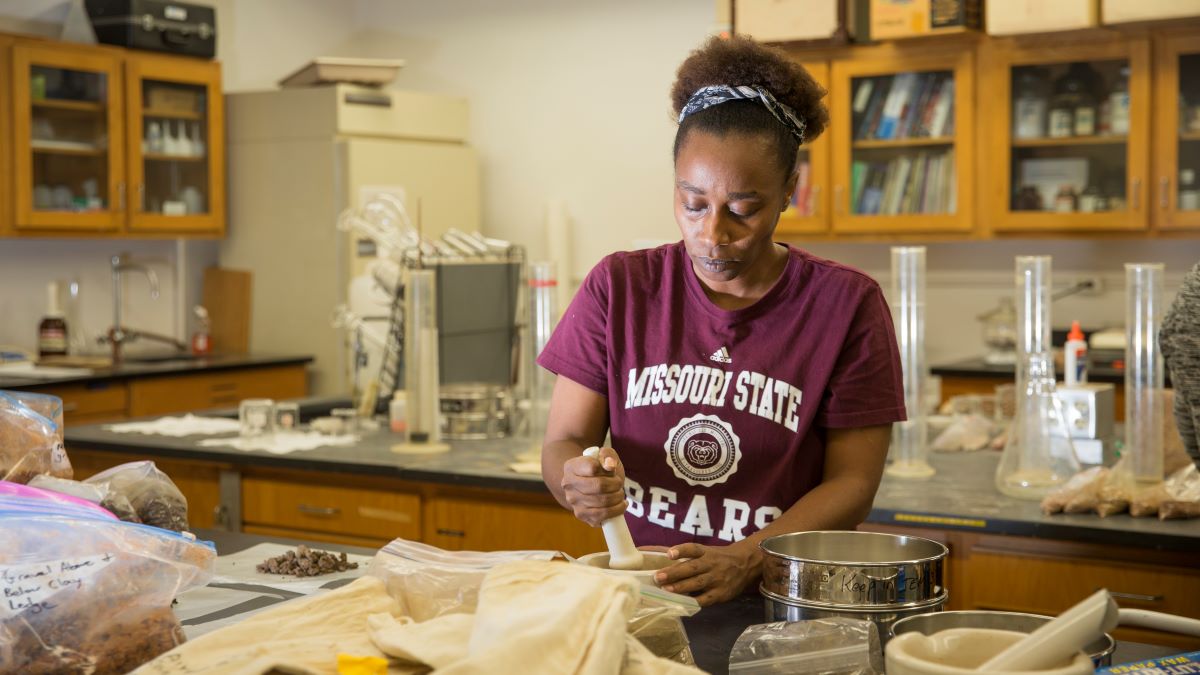Outcomes

Timelines
The Missouri State University ADVANCE Catalyst Project team worked on many projects to promote equity for our women STEM faculty.
2019-2021
- Review MSU Climate Surveys – 2015 and 2019
- Literature review on gender equity, intersectionality and institutional change, including those resources available at the ARC Network
- Collect quantitative data from STEM units following ADVANCE Indicators Toolkit
- Conduct focus groups with STEM faculty
- Visit exemplar ADVANCE institutions
2021-2022
- Pilot equity strategies for systemic change
- Develop a 5-year equity plan
NSF defines STEM to include the following departments and schools on the MSU campus. The team has used this group as we have collected data.
- Biology (BIO)
- Chemistry and Biochemistry (CHM)
- Computer Science (CSC)
- Earth, Environment and Sustainability (SEES)
- Mathematics (MTH)
- Physics, Astronomy and Material Science (PAMS)
- Biomedical Sciences (BMS)
- Psychology (PSY)
- Economics (ECO)
- History (HST)
- Political Science (PLS)
- Sociology (SOC) and Anthropology (ANT)
The Missouri State University colleges represented include:
- College of Natural and Applied Sciences (CNAS) – BIO, CHM, CSC, SEES, MTH, PAMS
- McQueary College of Health and Human Services (MCHHS) – BMS, PSY
- Reynolds College of Arts, Social Sciences and Humanities (RCASH) – ECO, HST, PLS, SOC & ANT
Findings
Focus Groups – Faculty from the participating departments (as defined by NSF) were invited to participate in focus groups. Twenty of 230 total faculty participated in the focus groups in 2020. Focus group questions included:
- Tell us briefly about your overall experience so far as a faculty member at MSU, including working conditions and the overall climate in your department.
- Please share with us your thoughts about the overall hiring process in your department, and possible areas of improvement.
- Could you share with us your thoughts about current processes or policies for reappointment, tenure and promotion and your personal experience with them?
- Tell us about your personal experiences with work life balance?
- The next question is about career progression and leadership opportunities. Can you comment on the initiatives and efforts that support women and underrepresented faculty at MSU?
- Do you have any other additional comments or anything else you would like to say before we close our session?
The results were coded and led to the following general themes:
- Leadership – In general faculty were happy with leadership, but some thought that department heads needed more help.
- Mentoring – Some indicated no mentoring while others indicated strong mentoring within their department.
- Salary – Perceptions are that salaries (at hire) as well as amounts for promotions are too low.
- Expectations – Some noted that expectations were clear while other indicated that work expectations and expectations for promotion/tenure were not clear. There were also comments about inconsistent expectations between men/women, and junior/senior level faculty in their department.
- Hiring – Perception that MSU lacks policies, procedures and training for search committees.
- Lack of awareness of university policies related to diversity hiring, spousal hiring and maternity leaves.
- Work/Life Balance – Many comments about the difficulties related to work/life balance.
- Climate and Bias – Several comments both positive and negative regarding climate and bias.
Quantitative data
- Number and Percent of Women Tenured and Tenure-Track by department
- Faculty Gender Composition - % tenure/tenure track and % instructor by department
- Tenure/Promotion Review Outcomes – 2007-2019 – applications, approvals and denials by college
- Promotion Review Outcomes: Associate to Full Professor - 2007-2019 – applications, approvals and denials by college
- Years in Rank at the Associate Professor Level Faculty Hired as Assistant Professors – date in time information (2019-2020)
- Voluntary, Non-Retirement Attrition – 2007-2019
- New-Hires – 2007-2019 – rank and gender (number and percentage by college)
| College | % Full Professors | % Associate Profs | % Assistant Profs | % Instructors |
|---|---|---|---|---|
| CNAS | 16.7 | 10 | 24.1 | 75 |
| MCHHS | 54.5 | 69.2 | 60 | 100 |
| CHPA | 24 | 54.5 | 60 | 33 |
Voluntary (non-retirement) attrition 2007-2019
CNAS: 8 men and 1 woman
MCHHS: 5 men and 4 women
CHPA: 2 men and 5 women
Tenure review outcomes summary (2007-2019)
| College | Total | Women |
|---|---|---|
| CNAS | 30 approvals, 5 denials | 3 approvals, 2 denials |
| MCHHS | 22 approvals, 5 denials | 11 approvals, 5 denials |
| CHPA | 9 approvals, 1 denial | 4 approvals, 1 denial |